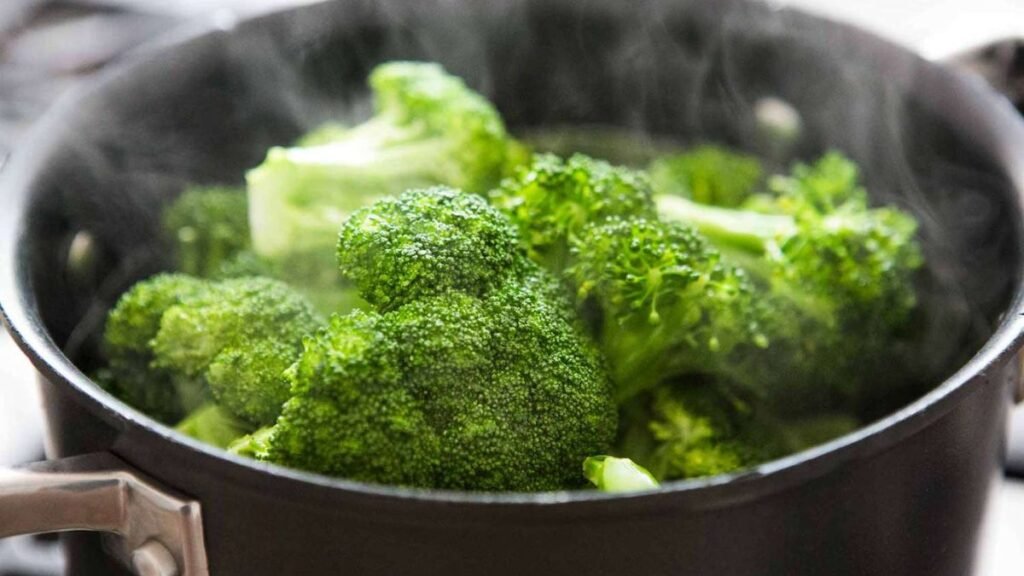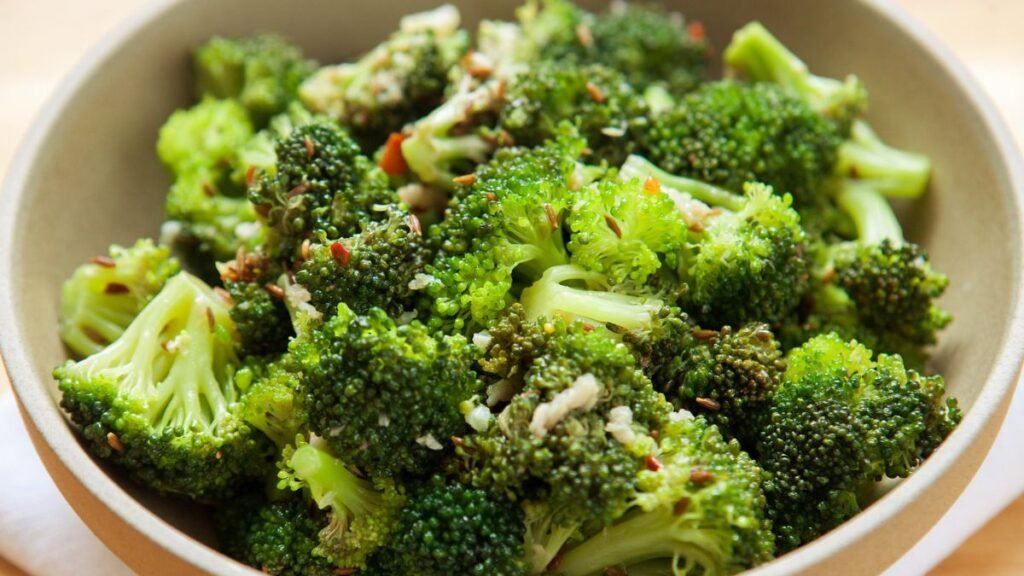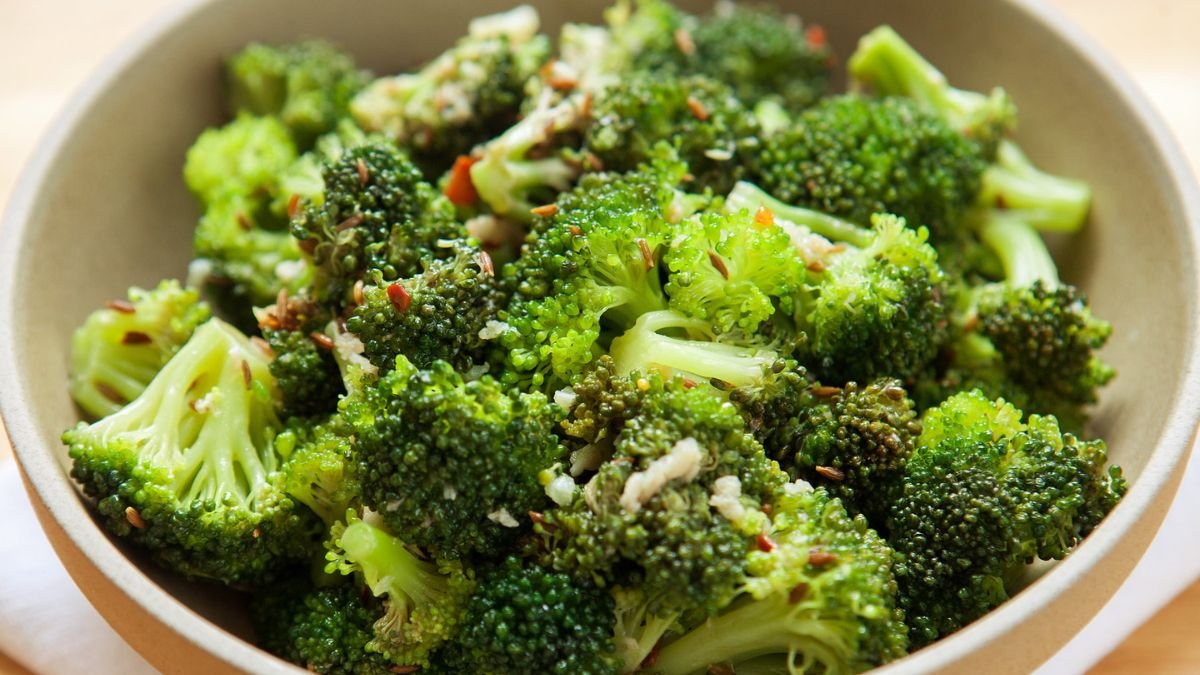Top 50 health benefits of broccoli | Nutritional benefits of broccoli
Broccoli has long been one of the more reviled vegetables. The broccoli on your plate undoubtedly went untouched when you were a child, but I’m here to tell you that you shouldn’t need any convincing to eat it. Why? Because the health advantages it provides are practically magical.
One of the most talked-about health benefits of broccoli is its ability to help strengthen the immune system and protect against disease. Additionally, research has shown that broccoli can help reduce inflammation, reduce the risk of heart disease, and even help reduce the risk of certain types of cancer. Furthermore, the health benefits of broccoli include its ability to aid in digestion, provide antioxidants, and help balance hormones. These are just a few of the many health benefits of broccoli.
Nutritional benefits of broccoli
An 80g portion broccoli (boiled) provides:
- 22 kcals/96KJ
- 2.6g protein
- 0.4g fat
- 2.2g carbohydrates
- 2.2g fibre
- 478mcg carotene
- 35mg vitamin C

Broccoli is one of the most popular and nutritious vegetables available. It is packed with essential minerals and vitamins and contains a variety of health benefits. Here are 50 health benefits of broccoli that you should know about.
50 health benefits of broccoli
- Broccoli is high in fiber, which helps to regulate digestion and can help prevent constipation.
- It is also high in Vitamin C and K, which can help boost your immune system and prevent illnesses.
- Broccoli is a great source of antioxidants, which can protect your cells from damage caused by free radicals.
- It is also a good source of calcium, which is important for healthy bones and teeth.
- Broccoli contains sulforaphane, which has been shown to have anti-cancer properties.
- It is also a good source of magnesium, which helps to regulate blood pressure and can reduce the risk of heart disease.
- Broccoli is low in calories, making it a great choice for weight loss and weight maintenance.
- It is also high in iron, which is important for healthy red blood cells and helps to prevent anemia.
- Broccoli is high in folate, which is important for pregnant women and can help prevent birth defects.
- It is also a good source of potassium, which helps to regulate fluid balance and can help lower blood pressure.
- Broccoli is rich in manganese, which helps to form connective tissue and can help reduce inflammation.
- It is also high in Vitamin A, which is important for vision and skin health.
- Broccoli contains lutein, which can help protect your eyes from age-related macular degeneration.
- It is also a good source of Vitamin E, which can help protect your cells from oxidative damage.
- Broccoli is high in fiber, which can help reduce cholesterol levels and improve heart health.
- It is also a good source of B vitamins, which can help regulate your metabolism and energy levels.
- Broccoli is rich in glucoraphanin, which can help reduce the risk of certain types of cancer.
- It is also high in omega-3 fatty acids, which can help reduce inflammation and may help protect against heart disease.
- Broccoli contains indole-3-carbinol, which can help reduce the risk of certain types.
- Broccoli is a good source of zinc, which helps to boost the immune system and can help protect against colds and flu.
- It is also rich in selenium, which can help protect against cell damage and can help reduce the risk of certain cancers.
- Broccoli contains choline, which is important for the development of the nervous system and can help improve brain function.
- It is also a good source of tryptophan, which can help reduce stress and can help promote better sleep.
- Broccoli is high in chromium, which can help regulate blood sugar levels and can help reduce the risk of diabetes.
- It is also rich in bioflavonoids, which can help reduce allergies and can help reduce inflammation.
- Broccoli contains sulforaphane, which can help reduce the risk of certain types of cancer.
- It is also a good source of niacin, which is important for the production of energy and can help reduce fatigue.
- Broccoli is high in dietary fiber, which can help reduce hunger and can help improve digestion.
- It is also a good source of Vitamin B6, which can help reduce inflammation and can help boost your mood.
- Broccoli contains kaempferol, which can help reduce the risk of certain types of cancer.
- It is also rich in folate, which is important for pregnant women and can help prevent birth defects.
- Broccoli is a good source of Vitamin B1, which is important for healthy nerve and muscle function.
- It is also high in magnesium, which helps to regulate blood pressure and can reduce the risk of heart disease.
- Broccoli contains phytonutrients, which can help support your body’s natural defense system.
- It is also a good source of Vitamin B2, which can help reduce fatigue and can help boost your energy levels.
- Broccoli is high in Vitamin B3, which can help regulate cholesterol levels and can help reduce the risk of heart disease.
- It is also rich in lutein, which can help protect your eyes from age-related macular degeneration.
- Broccoli contains sulforaphane, which can help reduce the risk of certain types of cancer.
- It is also a good source of Vitamin B5, which can help regulate hormones and can help improve your mood.
- Broccoli is high in Vitamin B6, which can help reduce inflammation and can help boost your mood.
- It is also a good source of Vitamin B9, which is important for fetal development and can help prevent birth defects.
- Broccoli contains kaempferol, which can help reduce the risk of certain types of cancer.
- It is also rich in manganese, which helps to form connective tissue and can help reduce inflammation.
- Broccoli is a good source of Vitamin B12, which is important for the production of red blood cells.
- It is also high in Vitamin K, which can help boost your immune system and can help prevent illnesses.
- Broccoli contains sulforaphane, which has been shown to have anti-cancer properties.
- It is also rich in lutein, which can help protect your eyes from age-related macular degeneration.
- Broccoli is a good source of folate, which is important for pregnant women and can help prevent birth defects.
- It is also high in chromium, which can help regulate blood sugar levels and can help reduce the risk of diabetes.
- It is also high in phosphorus, which is important for strong bones and teeth.

Is broccoli safe for everyone?
For those with a thyroid issue, it is recommended to limit consumption of brassica vegetables such as broccoli due to their interference with the absorption of iodine, which is essential for the production of thyroid hormones. Consuming a large amount of broccoli on a consistent basis is necessary for this to be a problem.
On the other hand, broccoli is a good source of fibre and can aid digestion and provide a fuel source for healthy bacteria in the gut. People with IBD, Crohn’s disease, or ulcerative colitis may experience bloating or gas from high-fibre foods.
Those taking blood thinning medication such as warfarin should discuss with a GP or dietitian about monitoring the vitamin K content of their diet, such as that found in broccoli. Before making any major dietary changes, it is best to check with a doctor or health professional.
Overall, broccoli is a powerhouse of nutrition and has many benefits for your health. From improving digestion to preventing cancer, there are many reasons to add broccoli to your diet. So, start adding this nutritious vegetable to your meals and reap the amazing health benefits it has to offer!

